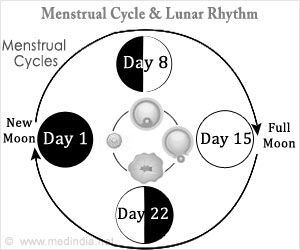
The three communities had varying access to electricity - no access, limited access (single source of artificial light), and full access to electricity.
Findings showed fluctuations in the sleep cycle regardless of an individual’s access to electricity. On the nights leading up to the full moon, less sleep and going to sleep later, was observed. On the other hand, nights leading to the new moon led to more extended periods of sleep and earlier turn-ins.
The findings suggest that our circadian rhythms are in sync with the phases of the lunar cycle.
De la Iglesia explained that a clear lunar modulation of sleep, with a decrease in and later onset of sleep on the nights before a full moon, has been observed. The effect is also present in communities with electricity.
The total amount of sleep variance, depending on the community, was 46 to 58 minutes on average, and bedtimes fluctuated by around 30 minutes. The latest bedtimes and the shortest amount of sleep were observed for all three communities, three to five nights before a full moon.
Advertisement
Results also showed that on those evenings, when participants slept the least and went to bed the latest, more natural light was available after dusk.
Advertisement
Leandro Casiraghi, lead author, says, “There has been a lot of suspicion on the idea that the phases of the moon could affect a behavior such as sleep — even though in urban settings with high amounts of light pollution, you may not know what the moon phase is unless you go outside or look out the window,” said Casiraghi.
The researchers state that more natural moonlight is available after dusk on evenings leading up to the full moon, acting like a substitue for sunlight. However, this can be disturbed by our access to electricity.
Source-Medindia















